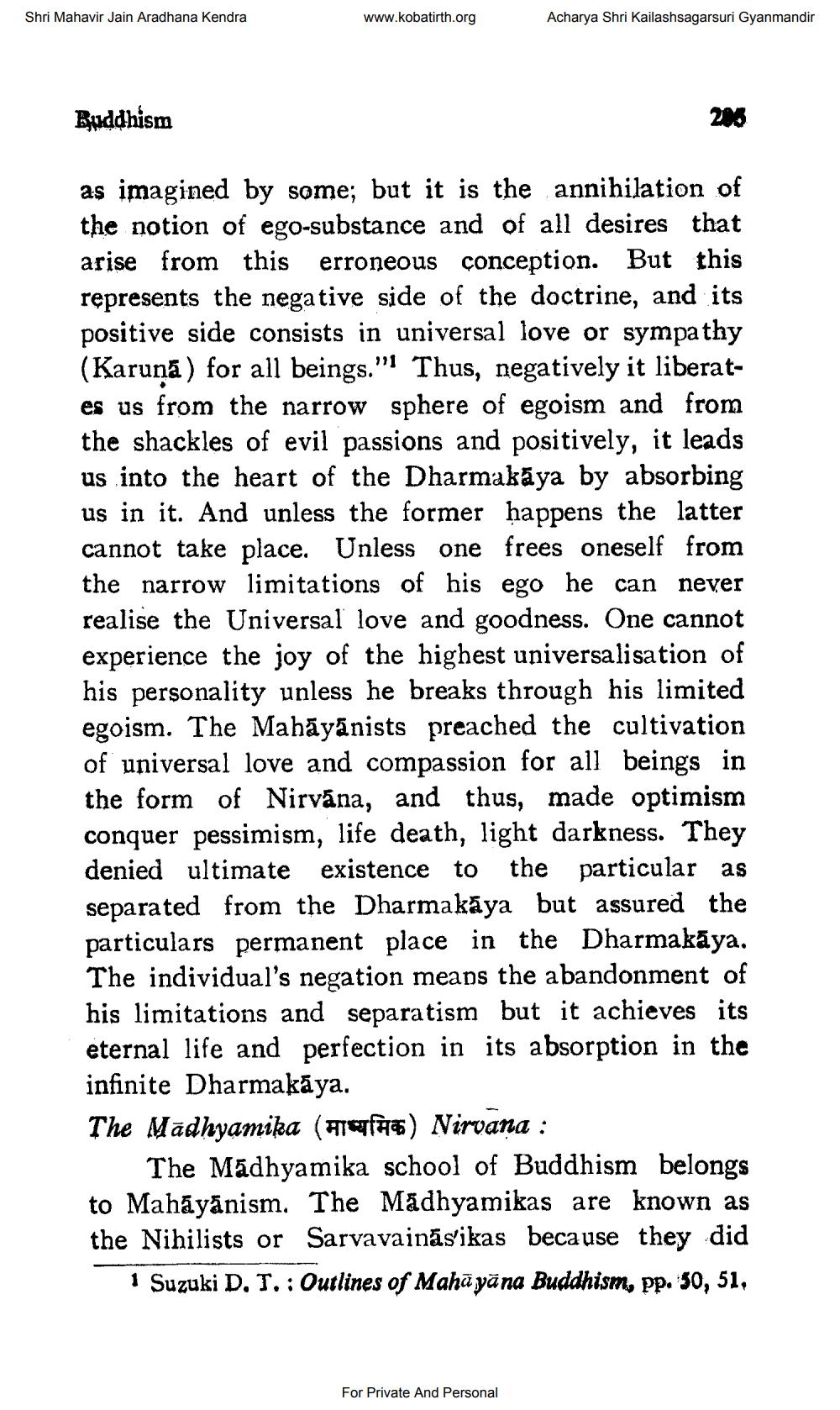________________
Shri Mahavir Jain Aradhana Kendra
www.kobatirth.org
Acharya Shri Kailashsagarsuri Gyanmandir
Buddhism
206
as imagined by some; but it is the annihilation of the notion of ego-substance and of all desires that arise from this erroneous conception. But this represents the negative side of the doctrine, and its positive side consists in universal love or sympathy (Karunā) for all beings."'! Thus, negatively it liberates us from the narrow sphere of egoism and from the shackles of evil passions and positively, it leads us into the heart of the Dharmakāya by absorbing us in it. And unless the former happens the latter cannot take place. Unless one frees oneself from the narrow limitations of his ego he can never realise the Universal love and goodness. One cannot experience the joy of the highest universalisation of his personality unless he breaks through his limited egoism. The Mahāyānists preached the cultivation of universal love and compassion for all beings in the form of Nirvana, and thus, made optimism conquer pessimism, life death, light darkness. They denied ultimate existence to the particular as separated from the Dharmakāya but assured the particulars permanent place in the Dharmakāya. The individual's negation means the abandonment of his limitations and separatism but it achieves its eternal life and perfection in its absorption in the infinite Dharmakāya. The Madhyamika (HSf9) Nirvana :
The Madhyamika school of Buddhism belongs to Mahāyānism. The Madhyamikas are known as the Nihilists or Sarvavainās'ikas because they did
Suzuki D. T. : Outlines of Mahāyāna Buddhism, pp. 50, 51,
For Private And Personal




